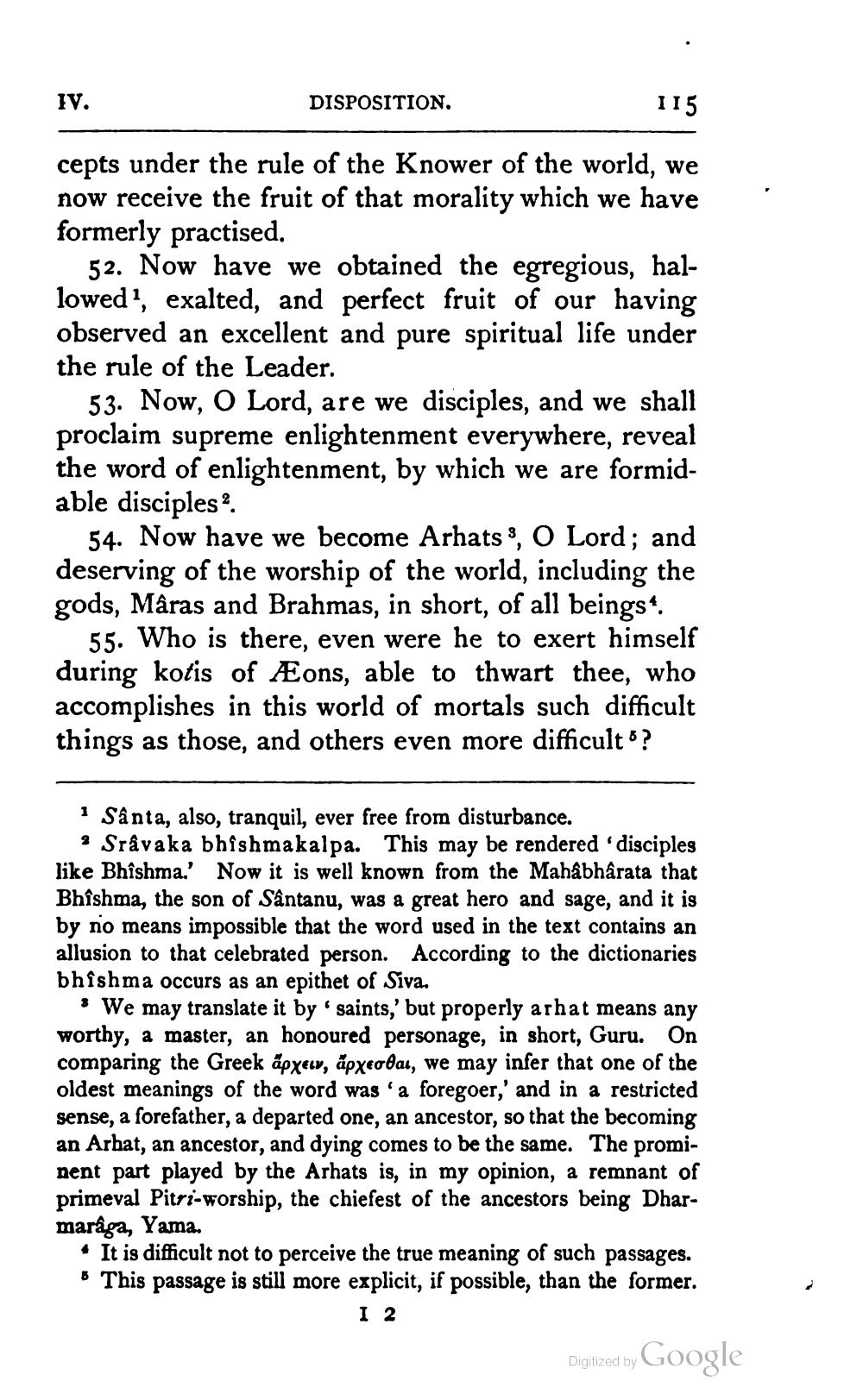________________
IV.
DISPOSITION.
115
cepts under the rule of the Knower of the world, we now receive the fruit of that morality which we have formerly practised.
52. Now have we obtained the egregious, hallowed", exalted, and perfect fruit of our having observed an excellent and pure spiritual life under the rule of the Leader.
53. Now, O Lord, are we disciples, and we shall proclaim supreme enlightenment everywhere, reveal the word of enlightenment, by which we are formidable disciples
54. Now have we become Arhats 5, O Lord; and deserving of the worship of the world, including the gods, Mâras and Brahmas, in short, of all beings.
55. Who is there, even were he to exert himself during kotis of Æons, able to thwart thee, who accomplishes in this world of mortals such difficult things as those, and others even more difficult ?
* Sânta, also, tranquil, ever free from disturbance.
Sråvaka bhishmakalpa. This may be rendered disciples like Bhishma.' Now it is well known from the Mahâbhârata that Bhîshma, the son of Sântanu, was a great hero and sage, and it is by no means impossible that the word used in the text contains an allusion to that celebrated person. According to the dictionaries bhishma occurs as an epithet of Siva.
• We may translate it by.saints,' but properly arhat means any worthy, a master, an honoured personage, in short, Guru. On comparing the Greek άρχειν, άρχεσθαι, we may infer that one of the oldest meanings of the word was a foregoer,' and in a restricted sense, a forefather, a departed one, an ancestor, so that the becoming an Arbat, an ancestor, and dying comes to be the same. The prominent part played by the Arhats is, in my opinion, a remnant of primeval Pitri-worship, the chiefest of the ancestors being Dharmarága, Yama.
• It is difficult not to perceive the true meaning of such passages. • This passage is still more explicit, if possible, than the former.
I 2
Digitized by Google




